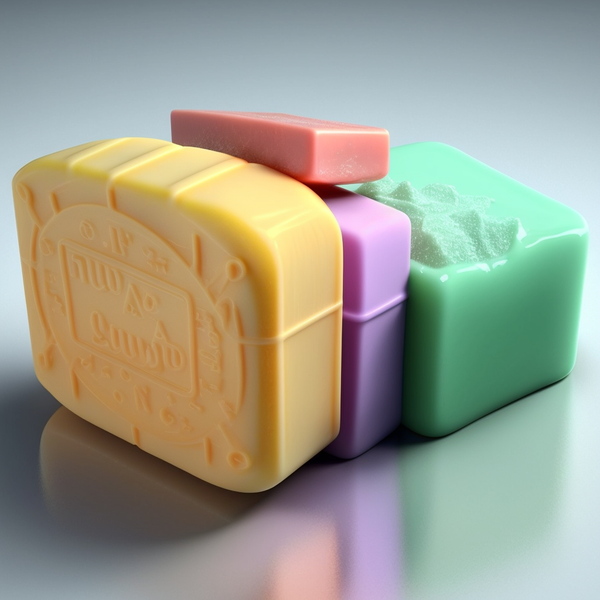March 19, 2023 -
The history of soap dates back to ancient civilizations, where people used a variety of natural substances to clean their skin and clothing. The ancient Egyptians, for example, used a mixture of animal and vegetable oils with alkaline salts to create a cleaning substance. The Babylonians also made soap around 2800 B.C. by boiling fats with ashes. The Greeks and Romans also used soap, but it was not until the Middle Ages that soap-making became a significant industry in Europe.
During the Middle Ages, soap-making became an important industry in Europe, particularly in Italy and Spain. Soap was produced in large quantities and exported to other parts of the world, including the Middle East and Asia. The soap-making process during this time involved boiling animal fats with an alkaline substance, usually potassium carbonate or sodium carbonate, to create a thick, hard soap.
The first major advancement in soap-making occurred in the 18th century when French chemist Nicolas Leblanc discovered a new process for producing soda ash, a key ingredient in soap-making. This new process made it possible to produce soda ash in much larger quantities, which made soap-making more efficient and cost-effective.
Another important development in soap-making came in the early 19th century when German chemist Johann Wolfgang von Goethe discovered the chemical composition of soap. He found that soap is composed of a mixture of fatty acids and alkali. This discovery led to further advancements in soap-making, particularly in the production of soaps with different properties and characteristics.
In the mid-19th century, soap-making underwent a significant transformation with the invention of the continuous soap-making process. This new process made it possible to produce large quantities of soap in a much shorter amount of time. The continuous soap-making process involved pumping a mixture of fatty acids and alkali through a series of pipes and chambers, where it was heated and mixed until it became soap.
The continuous soap-making process paved the way for the mass production of soap, which made soap much more affordable and accessible to the general public. This was particularly important during the Industrial Revolution, when people began to move from rural areas to cities and hygiene became a major concern.
In the early 20th century, soap-making continued to evolve with the introduction of synthetic detergents. These new cleaning agents were developed as a replacement for soap, which was becoming more expensive due to the rising cost of natural fats and oils. Synthetic detergents were made from petrochemicals and were much cheaper and more effective than soap.
Today, soap-making has become a sophisticated industry, with a wide range of different soaps available for different purposes and skin types. Modern soap-makers use a variety of natural and synthetic ingredients, including essential oils, fragrances, and colorants, to create soaps with different scents, textures, and colors.
Soap has also evolved beyond its traditional use as a cleaning agent for the body and clothing. Today, soap is used in a variety of other products, including cosmetics, pharmaceuticals, and cleaning products. Soap is also used in the production of biodiesel and other industrial products.
In conclusion, the history of soap is a long and fascinating one, dating back thousands of years to ancient civilizations. Soap-making has undergone many transformations over the years, from its humble beginnings as a simple mixture of natural fats and alkaline substances to the sophisticated industry it is today. Soap-making has played an important role in human hygiene and health, and has helped to prevent the spread of disease and infection throughout history. Today, soap continues to be an essential household item, used by millions of people around the world to keep themselves and their environment clean and healthy.


Post a Comment!